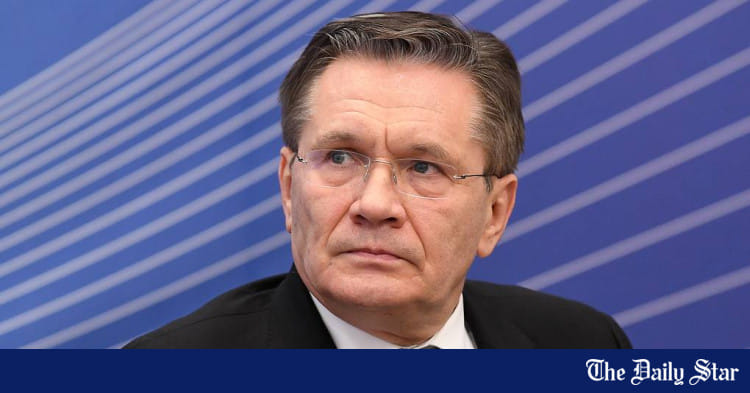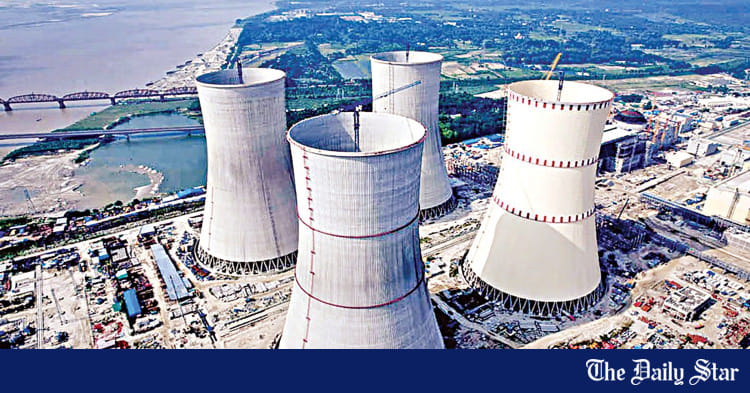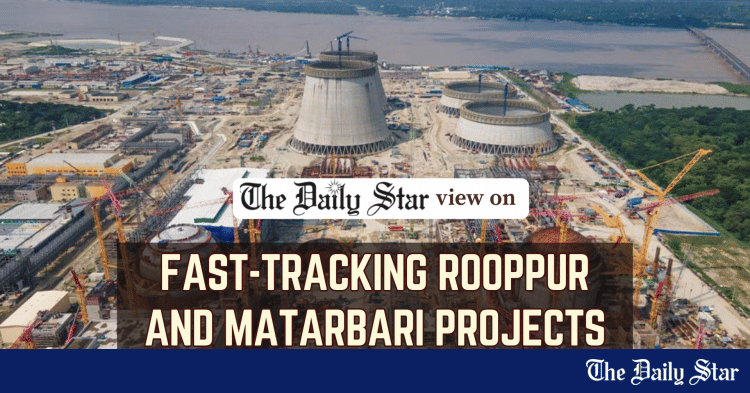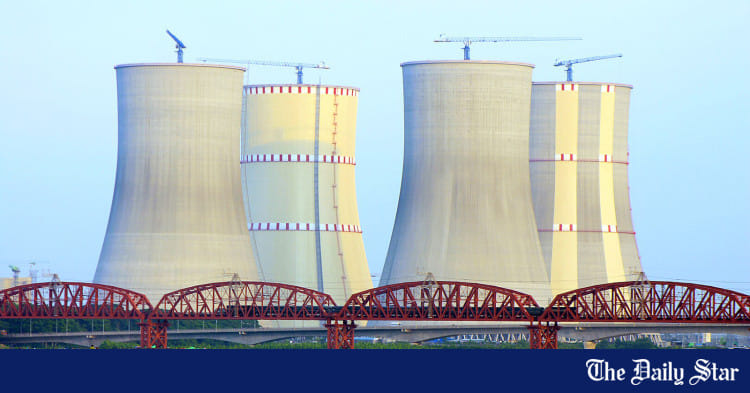Saif
Senior Member
- Joined
- Jan 24, 2024
- Messages
- 17,262
- Likes
- 8,334
- Nation

- Residence

- Axis Group


Joy denies graft in $12.65bi nuclear deal
Ousted Bangladesh Prime Minister Sheikh Hasina's son and adviser on Tuesday described allegations of corruption involving the family in the 2015 awarding of a $12.65 billion nuclear power contract as "completely bogus" and a "smear campaign". Bangladesh's Anti Corruption Commission said on Monday
Joy denies graft in $12.65bi nuclear deal
FE ONLINE DESK
Published :
Dec 25, 2024 01:35
Updated :
Dec 25, 2024 01:35

Ousted Bangladesh Prime Minister Sheikh Hasina's son and adviser on Tuesday described allegations of corruption involving the family in the 2015 awarding of a $12.65 billion nuclear power contract as "completely bogus" and a "smear campaign".
Bangladesh's Anti Corruption Commission said on Monday it had launched an enquiry into allegations of corruption, embezzlement and money laundering in the Rooppur Nuclear Power Plant project, backed by Russia's state-owned Rosatom.
A deal for two power plants, each with a capacity of 1,200 megawatts, was signed in 2015, reports bdnews24.com.
The commission has alleged that there were financial irregularities worth about $5 billion involving Hasina, her son Sajeeb Wazed and her niece and British treasury minister Tulip Siddiq, through offshore accounts.
Siddiq and Rosatom did not respond to Reuters requests for comment.
A spokesperson for British Prime Minister Keir Starmer said Siddiq had denied any involvement in the claims and that he had confidence in her. Siddiq would continue in her role, the spokesperson added.
In August, Bangladeshi media quoted Rosatam as rejecting an earlier media allegation of corruption, saying it was "committed to transparent working practices, strict anti-corruption policies, and openness in all procurement processes".
Wazed, speaking on behalf of the family, said they were the targets of a political witch hunt in Bangladesh.
"These are completely bogus allegations and a smear campaign. My family nor I have ever been involved or taken any money from any government projects," he told Reuters from Washington, where he lives.
"It is not possible to siphon off billions from a $10 billion project. We also don't have any offshore accounts. I have been living in the US for 30 years, my aunt and cousins in the UK for a similar amount of time. We obviously have accounts here, but none of us have ever seen that kind of money."
Reuters could not contact Hasina, who has not been seen in public since fleeing to New Delhi in early August following a deadly uprising against her in Bangladesh. Since then, an interim government has been running the country.
The government in Dhaka said on Monday it had asked India to send Hasina back. New Delhi has confirmed the request but declined further comment.
Wazeb said the family had not made a decision on Hasina's return to Bangladesh and that New Delhi had not asked her to seek asylum elsewhere.
FE ONLINE DESK
Published :
Dec 25, 2024 01:35
Updated :
Dec 25, 2024 01:35
Ousted Bangladesh Prime Minister Sheikh Hasina's son and adviser on Tuesday described allegations of corruption involving the family in the 2015 awarding of a $12.65 billion nuclear power contract as "completely bogus" and a "smear campaign".
Bangladesh's Anti Corruption Commission said on Monday it had launched an enquiry into allegations of corruption, embezzlement and money laundering in the Rooppur Nuclear Power Plant project, backed by Russia's state-owned Rosatom.
A deal for two power plants, each with a capacity of 1,200 megawatts, was signed in 2015, reports bdnews24.com.
The commission has alleged that there were financial irregularities worth about $5 billion involving Hasina, her son Sajeeb Wazed and her niece and British treasury minister Tulip Siddiq, through offshore accounts.
Siddiq and Rosatom did not respond to Reuters requests for comment.
A spokesperson for British Prime Minister Keir Starmer said Siddiq had denied any involvement in the claims and that he had confidence in her. Siddiq would continue in her role, the spokesperson added.
In August, Bangladeshi media quoted Rosatam as rejecting an earlier media allegation of corruption, saying it was "committed to transparent working practices, strict anti-corruption policies, and openness in all procurement processes".
Wazed, speaking on behalf of the family, said they were the targets of a political witch hunt in Bangladesh.
"These are completely bogus allegations and a smear campaign. My family nor I have ever been involved or taken any money from any government projects," he told Reuters from Washington, where he lives.
"It is not possible to siphon off billions from a $10 billion project. We also don't have any offshore accounts. I have been living in the US for 30 years, my aunt and cousins in the UK for a similar amount of time. We obviously have accounts here, but none of us have ever seen that kind of money."
Reuters could not contact Hasina, who has not been seen in public since fleeing to New Delhi in early August following a deadly uprising against her in Bangladesh. Since then, an interim government has been running the country.
The government in Dhaka said on Monday it had asked India to send Hasina back. New Delhi has confirmed the request but declined further comment.
Wazeb said the family had not made a decision on Hasina's return to Bangladesh and that New Delhi had not asked her to seek asylum elsewhere.








































